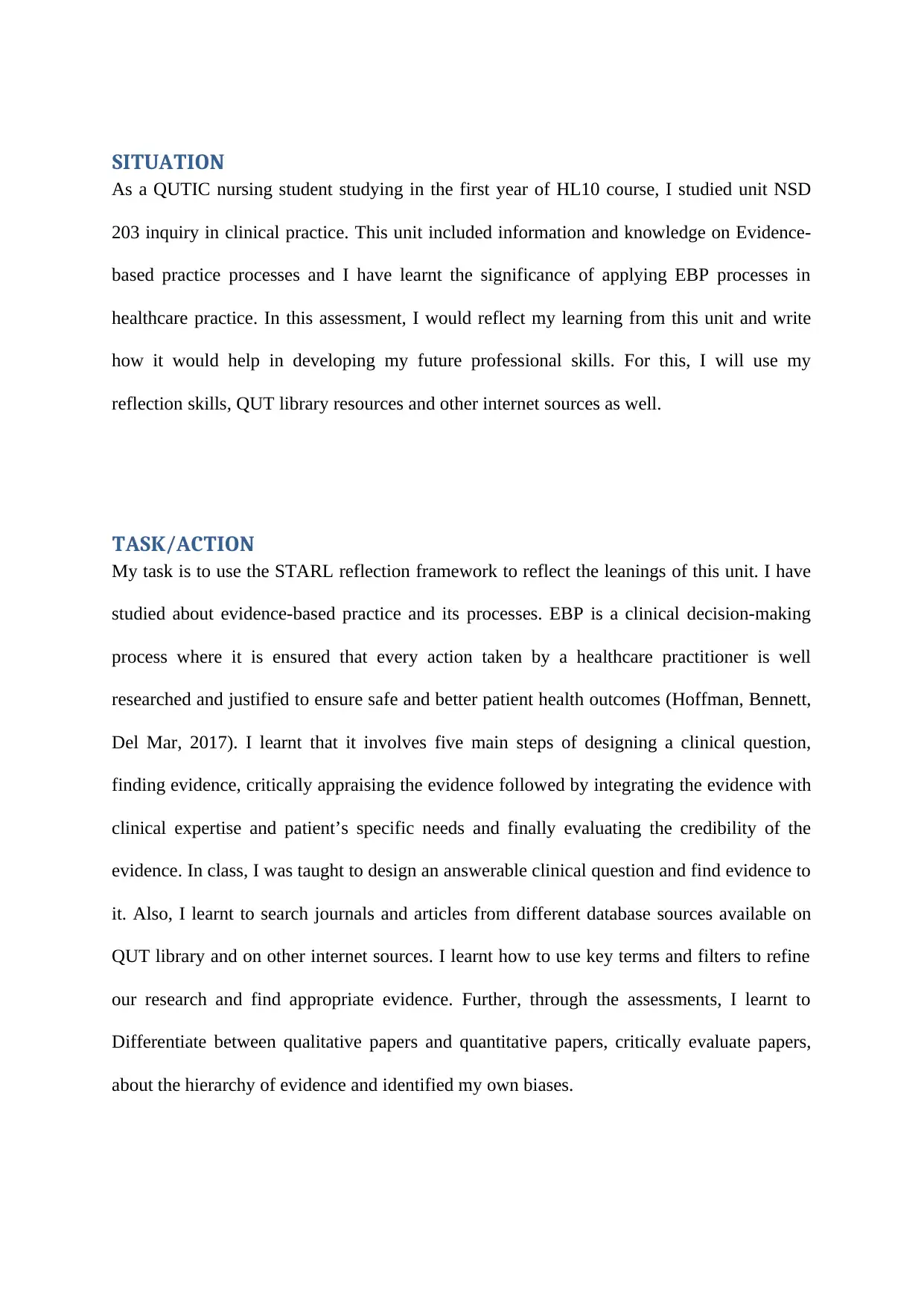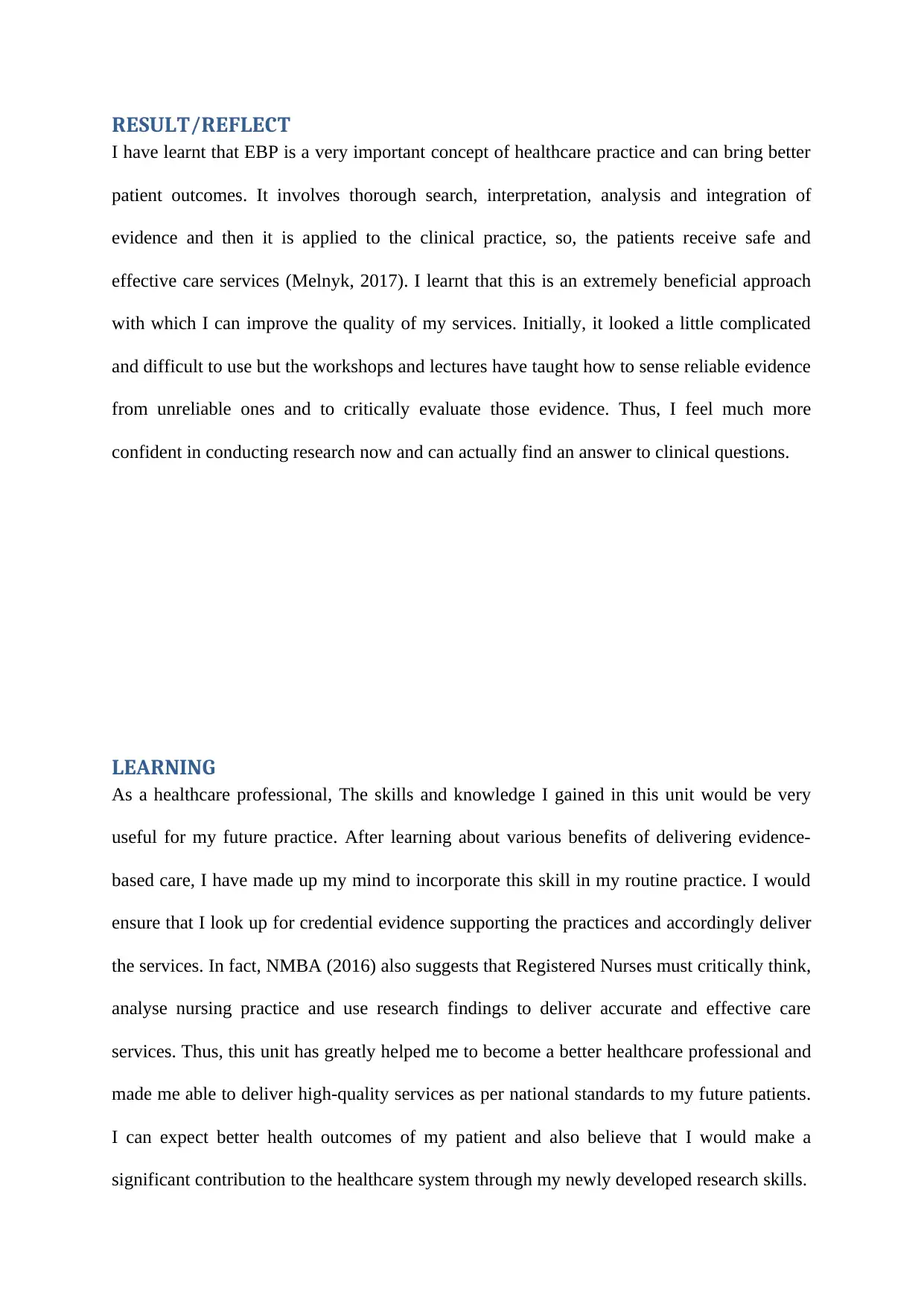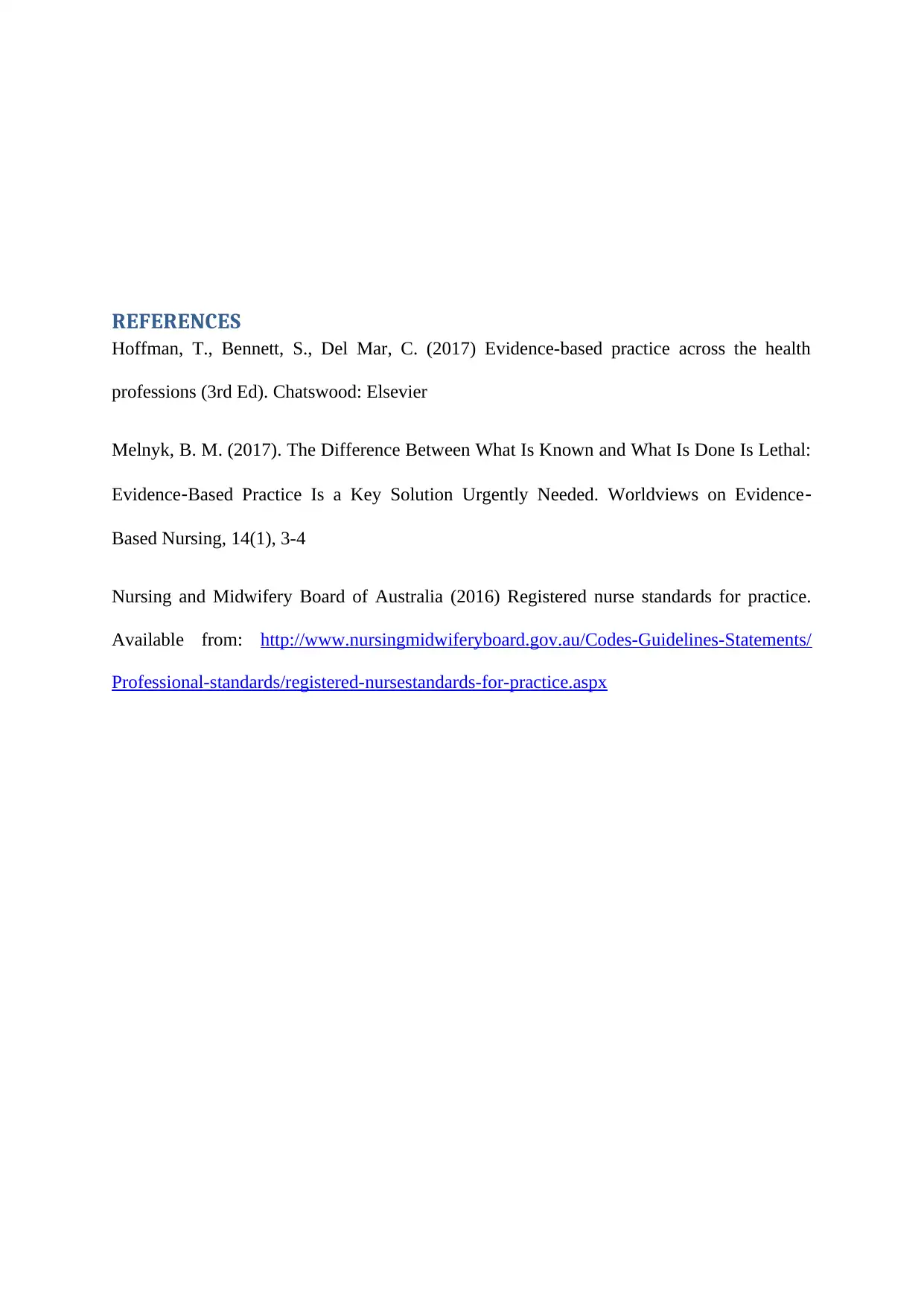QUTIC Nursing: Reflective Essay on Evidence-Based Practice - NSD 203
VerifiedAdded on 2024/05/15
|3
|686
|290
Essay
AI Summary
This essay is a reflection by a first-year QUTIC nursing student on their learning in NSD 203, focusing on evidence-based practice (EBP). The student uses the STARL reflection framework to discuss the significance of EBP in healthcare, detailing the five steps involved: designing a clinical question, finding evidence, critically appraising the evidence, integrating evidence with clinical expertise and patient needs, and evaluating credibility. The reflection highlights the student's increased confidence in conducting research and applying EBP to improve patient outcomes, aligning with NMBA standards for registered nurses. The student anticipates using these skills to deliver high-quality care and contribute to the healthcare system.
1 out of 3









![[object Object]](/_next/static/media/star-bottom.7253800d.svg)